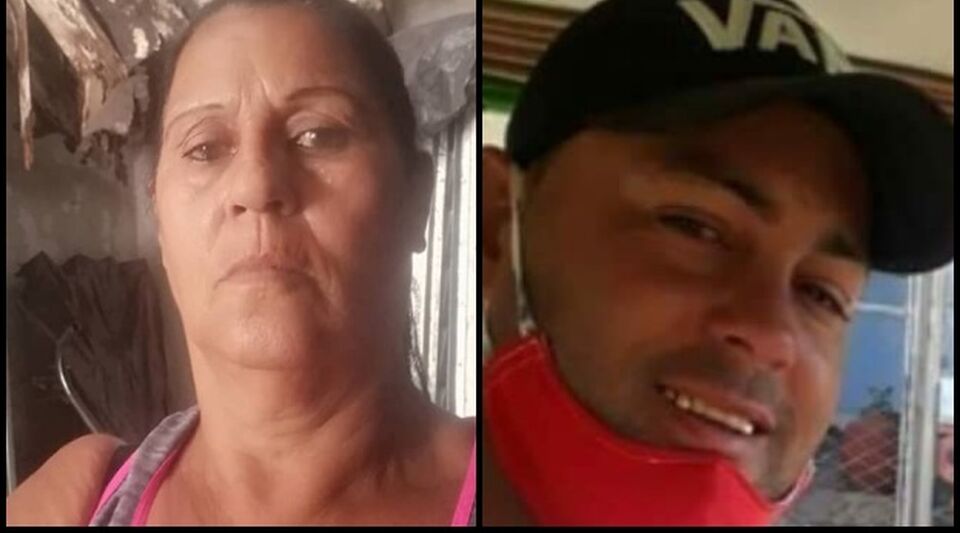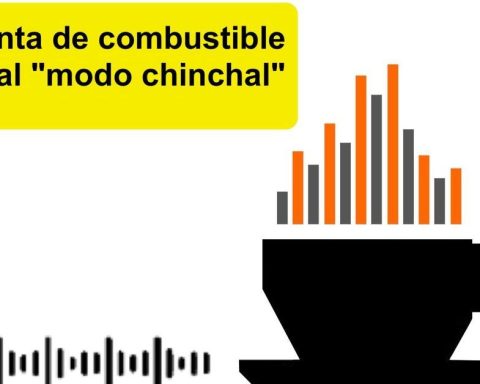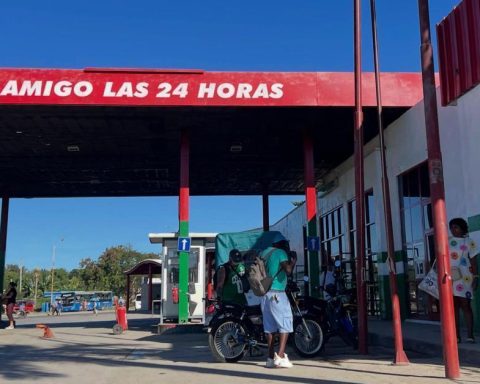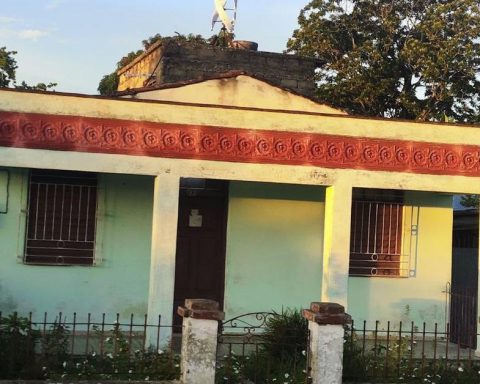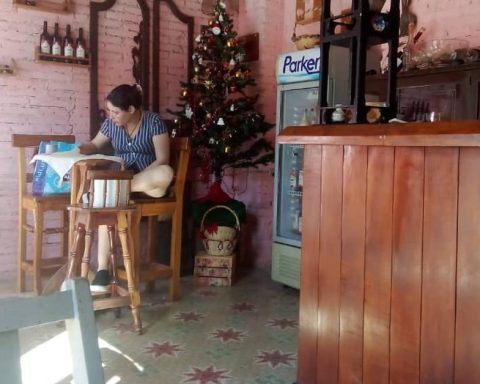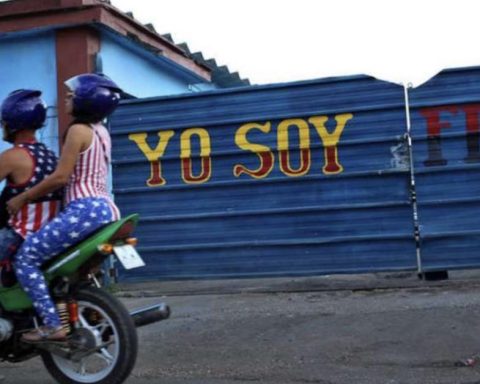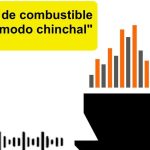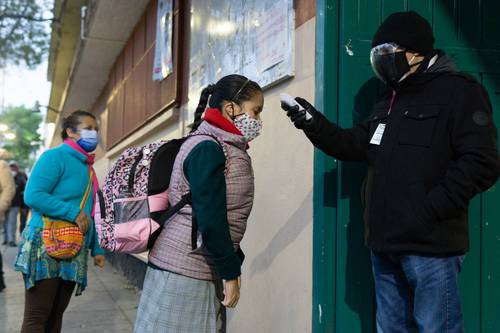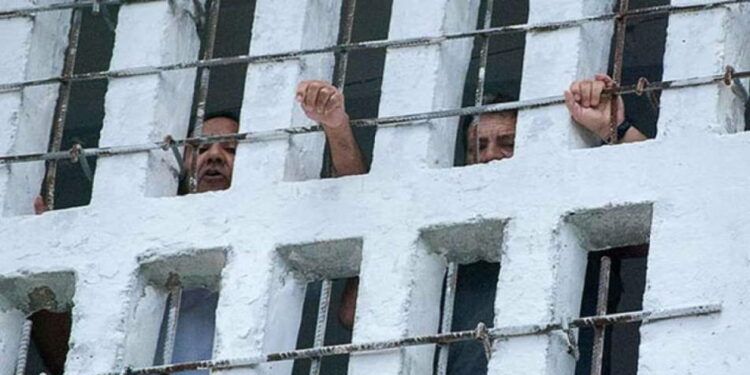Until a few months ago, María Luisa Fleitas Bravo’s main concern was repairing the roof of her house in the Havana neighborhood of The Güinera, which Hurricane Irma damaged, but now his mind is on another drama. His son, Rolando Vázquez Fleitas, was sentenced to 21 years in prison for sedition after the popular protests last July.
This Thursday, Fleitas reviewed for 14ymedio that day nine months ago when his life and that of his son were twisted forever. Vázquez was 32 years old at the time and that July 12 “he wanted to have a drink, so he went to a kiosk that his brother has where they sell that kind of thing,” the mother recalls.
“They stayed for a while talking and when he went to return home, people were already on the street,” he details. “There is a video in which he is seen crossing the street, going through the crowd, and then continuing on his way. Just because of that image, in which Rolando is not seen joining the protest, they condemned him.”
“There is a video in which he is seen crossing the street, going through the crowd, and then continuing on his way. Just because of that image, in which Rolando is not seen joining the protest, they condemned him”
“My son did not participate, there is not a single proof that he was in the demonstration. Even he is not arrested that day, but on July 21 they summon him for an interrogation at the Capri police station [municipio Arroyo Naranjo]”, he explains. “He was calm because they had told him that it was just to ask him a few questions but he did not return from there.”
In the file that was presented before the People’s Court of Havana, to which this newspaper had access, it is stated that Vázquez and several of the defendants in the same case threw stones at “local government officials and residents of the neighborhood, who in defense of the Revolution and to counteract the advance of the accused, they appeared” before the demonstrators.
But the videos presented at the trial do not confirm this sequence, according to family members consulted by 14ymedio, witnesses to the protest or who attended the oral hearing in the courtroom, the attacks began from the side of the defenders of the ruling party who tried to prevent so the demonstrators kept advancing and more neighbors joined them.
After the first interrogation, Vázquez spent about two weeks in the Capri station, then he was taken to the 100 and Aldabó detention center where they were kept for about two months. Later he was transferred to the Valle Grande prison until, after the trial held last December, he was confined in the Combinado del Este, the largest prison in Cuba.
Without a criminal record, before his life was confined behind bars, Vázquez was dedicated to construction as part of a brigade of private workers
Without a criminal record, before his life was confined behind bars, Vázquez was dedicated to construction as part of a brigade of private workers. “Her dream of hers was to help me repair my house because Hurricane Irma, five years ago, left it in disarray,” adds Fleitas.
The family has lived in La Güinera for two generations, one of the poorest neighborhoods in the Cuban capital. After the partial collapse of the house, its six members, including a baby, live in a piece that miraculously remained standing. Her mother worked as a domestic worker but since last July she couldn’t take it anymore: “I don’t have the strength to do that while my son is in prison.”
Rolando Vázquez Fleitas was born in the convulsive year of 1989, shortly before the fall of the Berlin Wall. He did not get to know the time of certain prosperity that the subsidy of the Soviet Union underpinned during that decade on the Island. Since he was a child, he lived with the monetary duality and the need to have dollars to buy shoes or toys.
“Here you live very badly because it is a very unhealthy distribution. There are many people whose houses have fallen. There is no future here in La Güinera, that is why the young people took to the streets that day. After the protest they came and they fixed three or four streets, but that’s not enough,” the mother now insists.
“A few days before the demonstrations, my son had returned from his first trip to Russia and was hoping to help me solve the situation at home. He told me, I’ll be able to make some money to help you. He had everything planned to return to Moscow in September, but they stopped him before and he couldn’t,” laments Fleitas.
“I managed to enter the last day of the trial because his wife entered the day before. There were 17 people from La Güinera who were being tried in that group, including women.” In the same case, a father and a daughter, Fredy Beirut, 64, and Katia Beirut, 35, were tried. “The relatives even fainted when they left the Court after seeing what was happening there.”
“There is a lot of falsehood in that, because how could they attack that place with just their hands, in the images it is seen that they do not have anything on them”
“Many lies were told,” asserts the woman, such as that in La Güinera they had assaulted the police station. “There is a lot of falsehood in that, because how could they attack that place with just their hands, in the images you can see that they don’t have anything on them.” Fleitas adds that in the videos it is seen that those who began to throw stones at the people were “them”, that is, the pro-government supporters.
“The defense attorney acted well but in many moments of the trial they did not let him speak,” he laments. “Many injustices have been committed against my son and against the other detainees in that case. I know young people who were only in the doorway of their house and from there they made a video of the demonstration and they have sentenced them to a lot of years.”
After receiving the sentence, the family began an appeal process from which they are still awaiting a result. “As a mother, I am hopeful that he will be released soon, but I am not optimistic. I only know that he cannot spend so many years in jail, because there is no evidence. He is innocent.”
With a son in prison, the family’s economic situation has become more difficult to cope with: “Once I went to visit him in prison and I couldn’t bring him anything to eat because I didn’t have anything. His wife sometimes brings him food, but I Sometimes I can’t.”
“We can hardly talk on the phone because they have him under close surveillance. The letters we send him are all read,” laments the mother. “When he calls me we talk very quickly, he asks me how I feel and he almost has to hang up. Because they give him a few minutes and he also has to call his wife and his brother in that time.”
“In prison my son spent several days locked in a cell from which he could not leave for an ‘operational’ issue, so the guards told us. But when I went to find out, they told me it was for protection but they did not give me details. Something must have happened to him for that but they didn’t want to tell me and that worried me a lot,” he adds.
The mothers of the detainees that day in La Güinera “are not so united. Sometimes yes, other times not.” Last Wednesday, Fleitas was summoned by State Security to warn her not to film more videos of denunciation to post on social networks. “I told them that he was going to continue doing them because that is my son. I am going to continue demanding Rolando’s freedom.”
________________________
Collaborate with our work:
The team of 14ymedio is committed to doing serious journalism that reflects the reality of deep Cuba. Thank you for joining us on this long road. We invite you to continue supporting us, but this time becoming a member of our newspaper. Together we can continue transforming journalism in Cuba.
